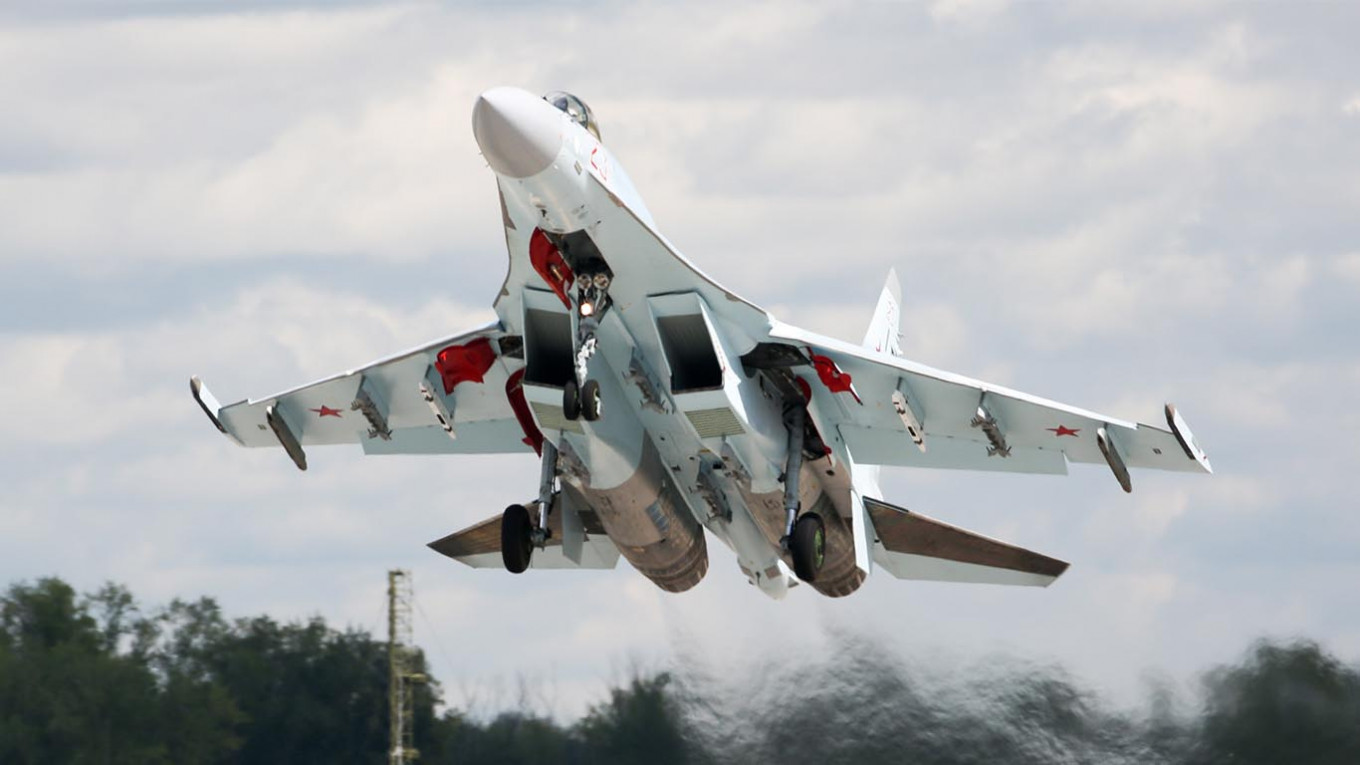
Russian jets have been involved in several flybys with U.S. and NATO aircraft over the Mediterranean and Baltic seas in recent days.
The series of interceptions end a pause of at least six months in Russian and U.S. aircraft buzzing each other in Europe and the Mediterranean.
A Russian Su-35 fighter intercepted the U.S. Navy’s P-8A Poseidon surveillance aircraft in an “unsafe and unprofessional manner” within 25 feet Sunday, the U.S. Navy said in a statement. It said a similar interaction occurred Wednesday over the same waters where an Su-35 flew an “inverted” maneuver within 25 feet of a P-8A.
Russia’s military defended the intercept as compliant with international rules for the use of airspace over international waters.
“A fighter from the air defense forces on duty at [Russia’s] Khmeimim air base [in Syria] was raised to identify the target,” the Defense Ministry was quoted by the state-run TASS news agency as saying.
The ministry said the Russian fighter identified the U.S. Navy aircraft by its tail number and took it for escort. The P-8A then changed course away from Khmeimim.
Meanwhile, NATO’s Allied Air Command said Monday that its aircraft intercepted two Russian fighter jets Friday “overflying” a U.S. Navy destroyer deployed in the Baltic Sea near Lithuania.
Russian and NATO aircraft have conducted thousands of intercepts over international waters in the past four years, the top U.S. commander in Europe said in December.
Russia hadn’t buzzed U.S. aircraft and ships in Europe and the Mediterranean in the three months leading up to December, the commander, Gen. Tod Wolters, said at the time.
NATO members and Russia have reported numerous airspace violations by military aircraft in eastern Europe since 2014, when Moscow’s annexation of Crimea from Ukraine froze relations between the sides.
The United States reported several Russian incursions last year, including in airspace near Alaska and Syria.
